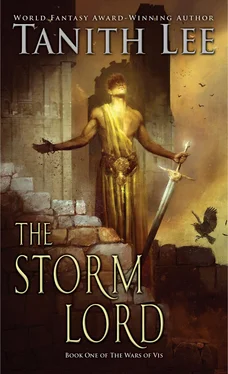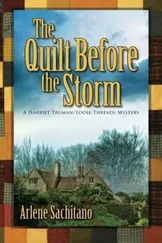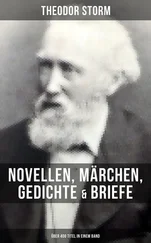“No honor, Xarab. You’ve a man here—”
“Why, yes. How singularly clever of you to know—”
“A Lowlander.”
Xaros raised his eyebrows.
“Indeed no, soldier. I spit on such scum.”
“Oh yes? Then who’s the man?”
“My brother, sir. Prey to a strange affliction; the physician is entirely baffled.”
The two Dortharians thrust by him and flung open the door of the second room. They saw a dark-haired man, apparently asleep in the bed, and a Xarabian woman drooped at the bedside in an attitude of weary despair.
“I must beg you, sir, not to disturb the poor fellow. Additionally,” Xaros muttered with pathos, “the fever is highly contagious.”
The soldier nearest the bed checked his stride.
“Have you reported his sickness to the authorities?”
“Naturally, sir,” Xaros murmured.
“Damnation,” snarled the Dortharian in the doorway. “You were born of a lying race, Xarab. I’ll skin those rats in Slant Street if I catch them.”
“Liars abound,” Xaros remarked sententiously.
The two men pushed their way past.
“What had the Lowlander done to displease you, magnificent sir?”
“That’s my affair. I owe him something.”
Xaros ushered them out and called solicitously after them to mind their step on the lower stairs, then shut the door—and leaned thereon in the helpless mirth of self-applause.
“I’m in your debt for my life,” Raldnor said. It had been easy enough to feign illness in that room, so close to a piece of death.
“So you are. But, more to the point, don’t you think, Helida, that he makes a remarkably good Vis?”
And later, when Raldnor stared at himself in Helida’s glass, another man looked back at him. Something irreparable had occurred—it stretched quite beyond the incident. For it seemed to him he was no longer Raldnor, certainly no longer the Raldnor he had known. And the planes of his face were comfortable and apt, their hauteur set now in this darkness. He seemed to discover himself for what he was. “I am easy with this stranger,” he thought. “He never knew the crippling of a deaf mind, nor the unwilling Lowland girls; not even the white crystal girl of the Lowlander’s sleep. I am Vis now, truly Vis. Is this the legacy my mother intended? Out of an old whore’s dye bottle?”
He took up the wolf pelt in the morning and went out to sell it. The streets ran with the rain of the thaw, but he did not think of Orhvan’s wagon negotiating the unfriendly mud, nor of the ruined city; in a way he had renounced them. And he walked arrogantly, unafraid. Since he had seen the Dortharian soldier spit from the courtyard after them, a hidden part of him had been uneasy to move about these streets, though he had not owned this.
Yet near the furriers Xaros had recommended, he passed across the Red Market and saw five women up for sale to the whorehouses.
Four were pert faced and untroubled enough, flirting with the crowd—black-haired tarts already from the look of them. The fifth was a Lowland woman, dressed in a coarse shift.
Raldnor stared at that familiar and unreadable face he knew so well from the villages. And then, incredibly, it seemed their minds touched, for her head jerked up and she scanned the crowd. Yet he was not strong or adept enough to hold their accidental contact; he did not know how. And she, seeing only dark men about her, relapsed into gray immobility.
Yet the mob, mostly louts with some Ommos and Dortharian men among them, began to jeer at her.
“Looking for me, you yellow mare? I’ll ride you!”
Sudden cold fear dropped over Raldnor. He began to shiver. With an impulse of agonized cowardice, he turned and pushed a way across the square.
He reached the furriers with a sense of horror still on him.
The shop was lofty and dim, and smelled of its wares. He snatched up a handbell and rang it sharply, and the merchant emerged like a shade from a crevice in the wall.
“My lord?” His voice was oddly fawning, unctuous. Raldnor was marvelously surprised to be addressed in such a voice.
“This,” he said; he opened the cloth and spread the pelt on the counter in a spool of icy flame.
The merchant betrayed himself with a sharp intake of breath. Then, mastering himself, he said: “A fine skin. Indeed yes. You bleached it?”
“I didn’t touch it. This was a white wolf.”
The merchant gave a little laugh, as if amused by a favorite child.
“Ah, my lord. A wolf pelt of this size, and so white?”
“If you’ve no taste for my goods, I’ll go elsewhere.”
“Wait, my lord—indeed—you’re too hasty. Possibly it’s as you say. But I’ve no recollection of a hunter trapping such a thing for years.”
“Not trapped. Pierced through the eye. The pelt’s unmarked.”
The merchant hastily examined the hide, then, shaking his head, he murmured: “Of course, it would be difficult to sell so large an article, the times being what they are. I could offer you fifteen ankars in gold.”
“Offer me thirty,” Raldnor said, well instructed by Xaros and inflamed by loathing to boot.
“He deserves more for his impertinence alone,” a new voice said.
Raldnor turned and saw a man had come out of the hole in the wall. He was a Dortharian, there was no mistaking it, yet he did not wear the dragon mail. He leaned on the counter, looking at Raldnor.
“You should have called me sooner, merchant.” The merchant began to speak, but the newcomer overrode him. “Tell me, where did you kill your wolf?”
Cautiously Raldnor assessed his own words.
“In the Plains.”
“The Plains? A long way surely from home? You’re from the cities of Dorthar, are you not?”
This ghastly irony brought the blood singing to Raldnor’s ears.
“I’m no Dortharian.”
“How quickly you disclaim the High Race of Vis. Where then?”
“I come from Sar,” Raldnor said, “near the Dragon Gate.”
It was where his mother had been making for, so his foster village had thought, thus it carried a kind of truth.
“Sar, eh? And the wolf, where did he come from?”
“Out of the dark, on to my knife.”
The man laughed.
“Fifty gold ankars for that pelt, merchant.” The merchant gobbled. “But you’re too late. My master will buy it. It’s better than anything you showed me. Come aside.” And he drew Raldnor into the dusky twilight of the shop—the merchant, for some reason intimidated, not following. “Well, hunter, so you can kill wolves. Ever killed a man?”
Raldnor stared at him in silence.
“Oh, it’s a good trade, the trade of soldiering. Your mother was Xarabian, was she? Know your father, do you?”
“You insult me,” Raldnor said coldly, a burning nausea in his throat before he knew the reason.
“Not I. Your father was a Dortharian for my money. And that, lad, is a compliment. Well, would you like to soldier for an exceptionally generous lord who holds a high place in Koramvis?”
“Why should I want such a thing?”
“Why indeed? Why not scratch out a life in Sar?”
“Who is this lord?”
“You go too fast. Take this and spend it, and think about spending such a sum more regularly in Dorthar. Return here tomorrow at noon. We’ll talk then.”
Raldnor took the bulging money bag, opened it and saw the gold pieces shining up at him. He felt once more a shifting in the planes of his life.
“You’re very sure of me, Dortharian.”
“That’s how I earn my gold. By my unerring sense of a willing quarry.”
Raldnor turned and walked between the heaps of furs, leaving the pelt for the stranger who had bought it. At the door he heard the Dortharian call after him: “Noon, hunter. I’ll be waiting.”
Читать дальше












